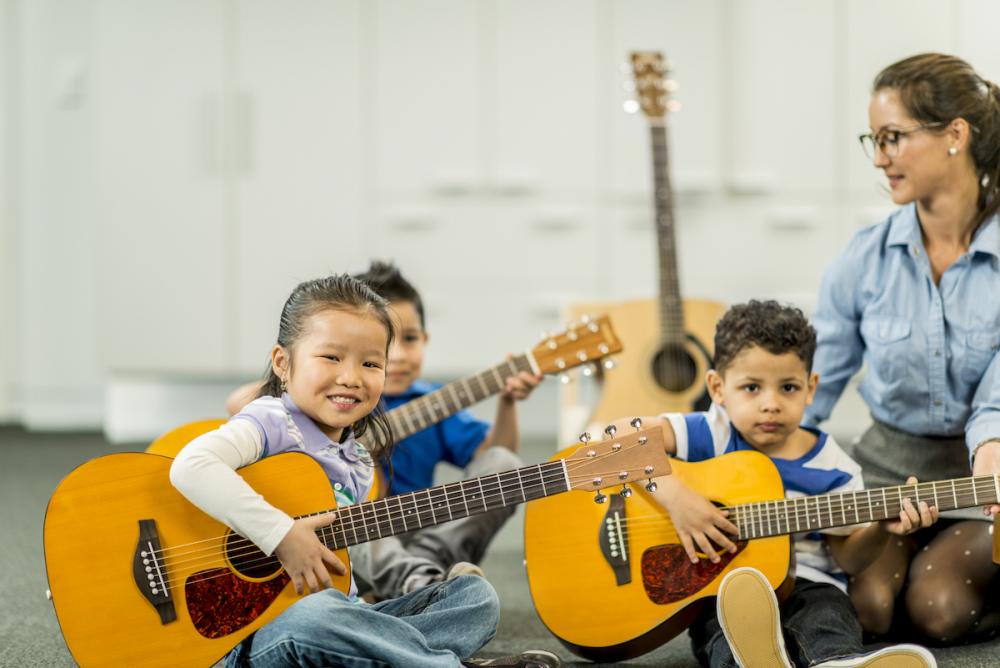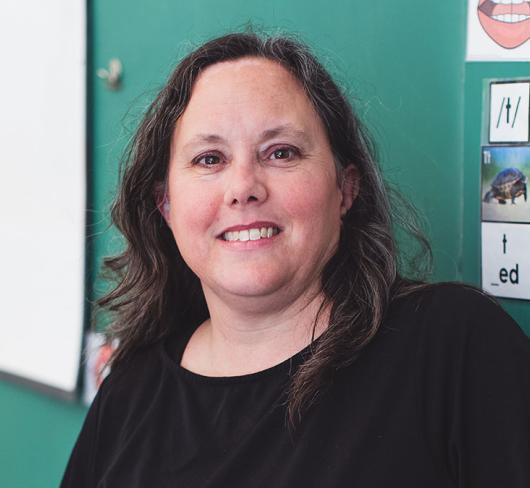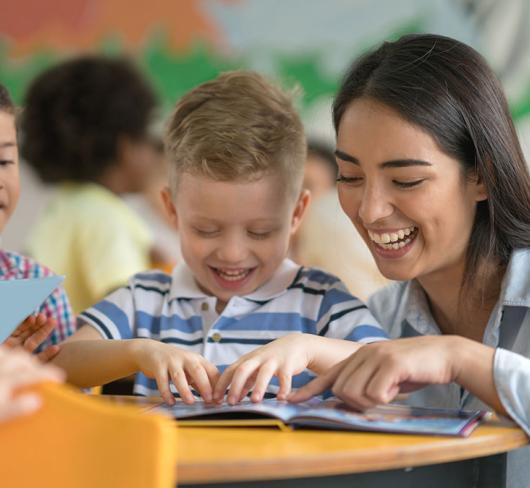
Why Music Is Essential in Elementary Schools
Research shows that students’ critical thinking and creativity increase through exposure to music. Research also suggests that the mathematical abilities of children who participate in music lessons may be increased through the study of music. Yet funds are often lacking for strong music programs in Ontario schools.
Over $125 million is spent each year on “student achievement” in Ontario’s almost four thousand elementary schools. The annual budget for standardized testing in Ontario through the Education Quality and Accountability Office (EQAO) is $33 million. The Ministry of Education’s Literacy and Numeracy Secretariat (LNS), which is devoted to student achievement, has an annual budget of $78 million. Additionally, salaries for 80 student achievement officers total $14.1 million.
Is this the best use of our money? The Elementary Teachers’ Federation of Ontario (ETFO) suggests the funding for EQAO would be better spent on strategies that focus on engaging students and giving teachers more time to spend with individual students. This includes increasing the number of specialist teachers in the arts. Here’s something to think about: if the $125 million spent on student achievement were suspended for only one year and diverted to music programs, each Ontario elementary school would receive over $31,000. This one-time payment could jump-start school music programs where there are no instruments or resources. For schools that have an active music program, this payment could be used to upgrade, repair or increase their musical instrument inventory.
There are good reasons to teach music.
- Music is part of what makes us human.
- Music has been with us for millennia. Our ancestors used music to communicate with each other.
- Music gives all people an equal chance for expression.
- Music lasts a lifetime. Studies have shown that Alzheimer patients who have diminished speech capabilities are able to sing lyrics of songs from their youth.
- Music teaches people valuable life skills. It requires commitment. It teaches co-operation, teamwork and patience.
- Music teaches body awareness and eye-hand coordination through clapping, stamping and playing an instrument.
- Music, like mathematics, is a universal language. Some people need coaching or coaxing; however, everyone can make music.
On the television program The Agenda with Steve Paikin, cognitive music psychology researcher Daniel Levitin stated that music is a core element of our identity as a species and paves the way for more complex behaviours such as language and the passing down of important information from one generation to the next. Howard Gardner also recognized the importance of music when he created his theory of multiple intelligences. By teaching children music we are introducing them to abstract concepts and intangible experiences. The fleeting nature of music means it can be interpreted in many different ways. The same piece of music often has different meanings for different people.
Not only is music beneficial in and of itself, it can be used to reinforce or teach concepts and make connections among other areas of the curriculum. As a music educator, I have witnessed “eureka moments” with many students when I explained the relationship between note duration and mathematical fractions. I have found great success teaching note duration through shapes and graphics. The lessons learned during music education can remain for a lifetime. Having taught elementary music for the past six years, I have experienced countless scenarios where students have demonstrated how music has changed their lives.
One increasingly popular style of music instruction is the Orff approach. One of the key beliefs of the Orff approach is that everyone is innately musical; everyone can make music. Orff encourages everyone to participate to the best of his/her abilities. It incorporates music, movement and speech, which allow everyone to be actively involved in making music. Orff instruction is based on the belief that music is a language and, just like spoken language, it can be taught without formal instruction. Students are free to experiment and participate in a non-judgmental environment that encourages risk-taking. In many cases conformity is highly valued inside elementary schools. Not so with Orff. Further, it doesn’t matter what kind of home a student comes from because music is the great equalizer – everyone is capable of making music. The Orff approach recognizes that music can be a powerful mode of communication.
Often parents teach concepts and ideas to their children through singing. Music education researchers know this. From as early as Junior Kindergarten, we teach students classroom rules and routines through song. It’s easier to remember things when they are set to music. In the primary grades the most important thing about music is that students make their own. Music empowers children like few other things can, and transfers creative skills to every other aspect of learning. Primary music incorporates body percussion (e.g., stamping feet, clapping hands, etc.) and singing, and encourages risk taking. In the junior grades, music education teaches life skills, such as co-operation, problem solving, teamwork, abstract thinking and discipline.
Since music is a language, studying music makes it easier to learn another language, such as French. By participating in music classes, children get energized and it makes them feel good about themselves and about being at school. Music can reach children who have difficulty with school in general, and make them interested in learning. Music classes encourage positive risk-taking behaviours, such as improvisation, composition and performing solos. In the intermediate grades, music lessons enable and stimulate self-discovery and motivation for independent study (such as science or history). Music provides a means for self-expression, especially for those students whose first language is not English. It allows some individuals to communicate more deeply and with more emotion. Music education teaches students to think creatively and critically, developing skills that are essential in the twenty-first-century workforce. All of these skills can be carried through to adulthood.
What does this have to do with standardized testing? It appears that a great preparation for high achievement on standardized tests is music training. Logically, in order to help students do their very best, music programs should be well funded in each and every school. Studies have shown that math test scores increased with each year that students participated in instrumental music programs. Beginning in their first year of school, all children should have a right to quality music instruction taught by teachers with a background and training in music.
Year after year politicians put increasing emphasis on high-stress/high-stakes standardized testing. Standardized testing forces teachers to move away from the real work of education. It requires an incredible amount of time, money and resources, all devoted to raising test scores and unpacking data. If the money spent on testing were diverted to funding music and the other arts in schools, not only would overall student achievement levels rise, but students would also become better problem solvers, creative thinkers and team players. They would develop into more expressive, empathetic, self-aware individuals. By regularly attending music classes students experience greater self-confidence. This confidence can never be tied to how well they score on a provincial test.
Joshua Ball is a member of the Elementary Teachers of Toronto Local.

